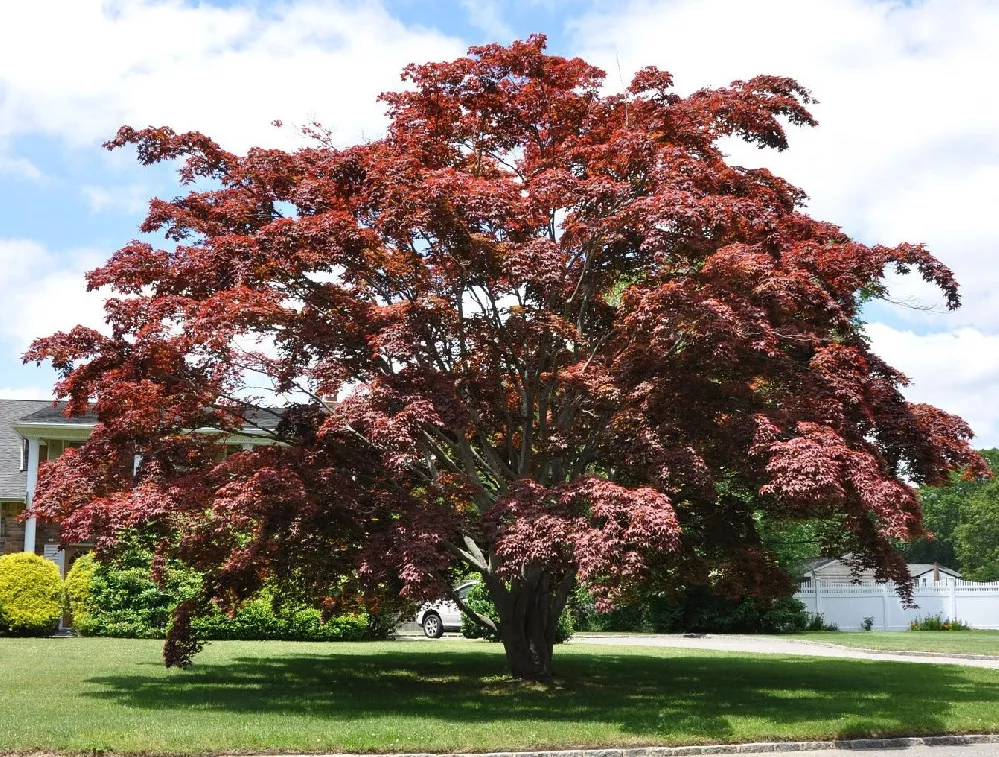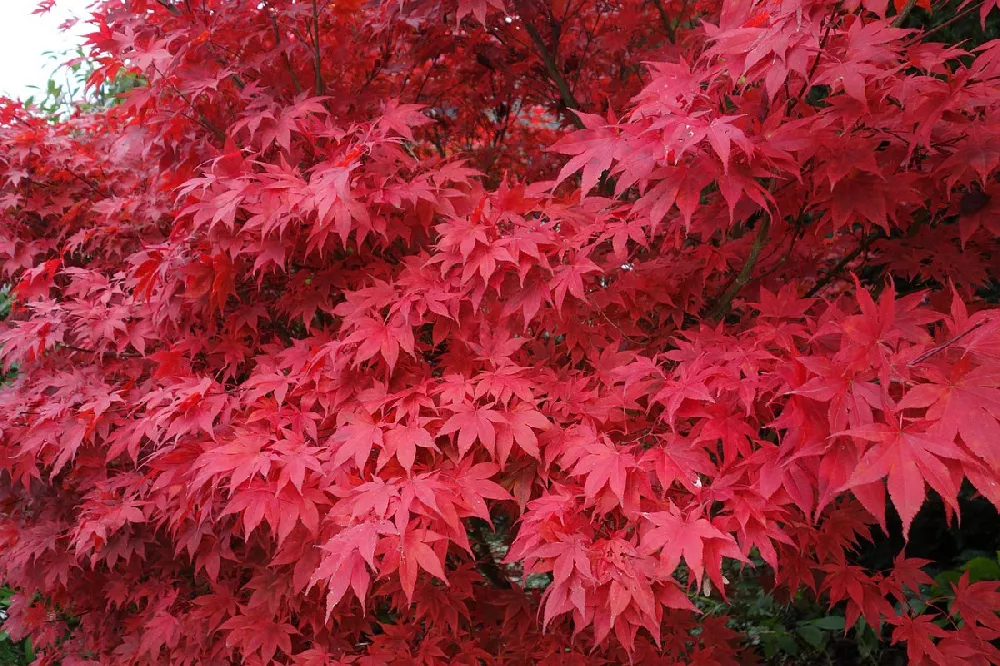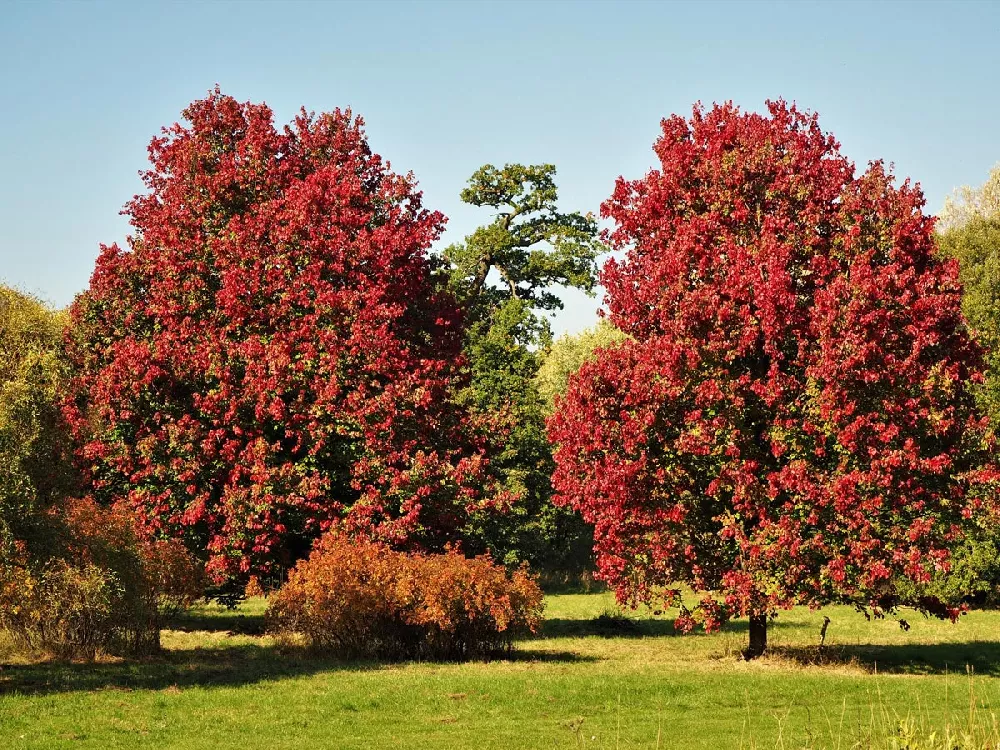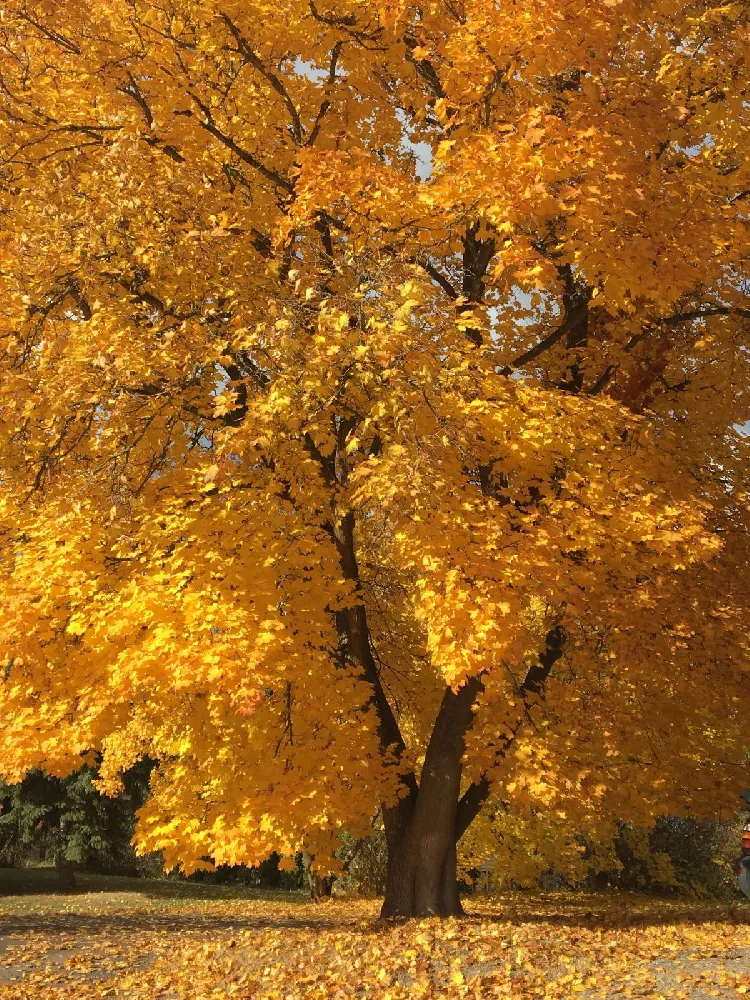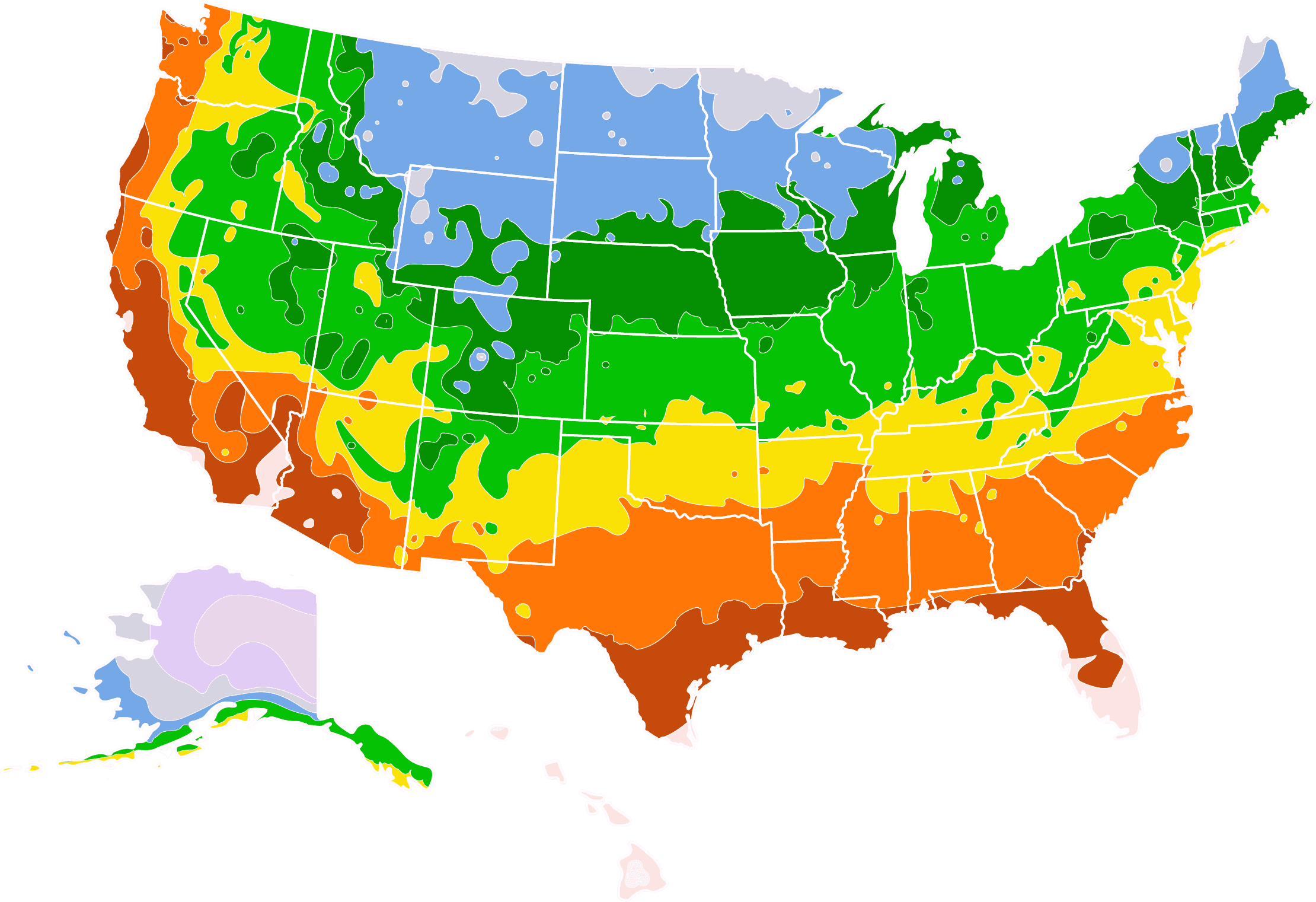- Home >
- Maple Trees >
- Red Sunset Maple Tree
Red Sunset Maple Tree for Sale - Buying & Growing Guide
- Ships in 1-2 days
- 1-Year Warranty Eligible
- Pots or accessories are not included unless specified in the product options.
Shipping Details:
Once your order is shipped, you’ll receive an email with a tracking number and estimated delivery date. Most orders ship immediately, but some items are seasonal and may only ship in spring or fall. These products are noted on the website.
The aptly-named red sunset maple tree, Acer rubrum 'Franksred,' is a handsome shade tree that comes with a bonus: vibrant flaming red and orange leaves that begin nearly a month before any other trees show off their fall colors. The tree also produces small clusters of red flowers in spring and winged samaras that are also reddish in color. The red sunset maple is a fairly large tree, with a height that maxes out at 40 to 50 feet. With a spread of 30 to 35 feet, it provides excellent shade when mature. A fast grower, it won't take that long to reach a good size, which makes it a great choice if you're hoping to have a mature garden in the near future. Here are a few other reasons to consider a red sunset maple tree:
- It grows throughout most of the continental U.S.; it is tolerant of temperatures down to -20.
- It needs little pruning or extra care, especially when mature.
- The red sunset maple tree is an excellent specimen tree for large landscapes.
Plant Care
Sunlight

The red sunset maple tree does best in partial to full sun — at least four hours of direct light a day.
Watering
When young, water regularly, especially when it's dry; a mature tree shouldn't need watering.
Fertilizing

Feed when young with a balanced, slow-release fertilizer designed for landscape trees and shrubs.
Planting and Care
Planting instructions
Site your red sunset maple tree in a spot with well-drained soil that is slightly acidic. Avoid planting it under overhead utility cables, and be sure it’s in a location that gets adequate sunlight — it can handle partial shade but will do better in full sun. Unpot your sapling and tease out any encircling roots, which can girdle the tree and slowly kill it. Dig a hole that’s as deep as the root ball and twice as wide. Place the tree in the hole, spreading out the roots. Holding the tree upright and steady, fill in around it with topsoil, tamping down as you go to eliminate air pockets. Water thoroughly. Apply a 2- to 3-inch layer of an organic mulch, such as bark chips, around the root zone, being careful that it does not touch the trunk.
Watering and nutrients
For its first few years, water your red sunset maple tree regularly, especially during very dry or hot weather. It needs about 1 inch of water a week. Once the tree is established and growing strongly, you can taper back on watering. A mature tree should be fine without any supplemental watering. Fertilize in early spring with an all-purpose, slow-release fertilizer that is designed for landscape trees and shrubs.
Pollination
The red sunset maple tree has small flowers that cluster along the branches in late spring. These are pollinated through the actions of bees and other small insects, with wind pollination also playing a role. Pollinated flowers produce samaras—the small seed bodies often called “helicopters” — which spin to the ground on windy days and release their seeds.
Pruning
The red sunset maple tree needs little pruning. Monitor your tree for dead, diseased, or damaged limbs, and trim these out when you see them. If you wish to lightly shape the canopy of a young tree, you may do so, although your tree will naturally assume an attractive pyramidal shape that branches out to a broad, rounded canopy as a mature tree.
Pests and diseases
Common insect pests that may appear on your red sunset maple tree include aphids, scale insects, and ambrosia beetles. A healthy tree should be able to fend off most infestations; releasing beneficial insects such as ladybugs and lacewings may also help control them. Diseases of the maple tree include leaf scorch, anthracnose, and phyllosticta leaf spot. The latter two are fungal in nature; a copper fungicide may help fight them.
Achieving maximum results
One way to achieve maximum results with your red sunset maple tree is to place it wisely so that it has a positive and lasting impact on the surrounding landscape. This is not a small tree; it would be a poor choice, for example, for someone with a small urban backyard that would be overwhelmed by a mature maple. On the other hand, a matched set of red sunset maple trees on either side of a larger home, or a row of them, spaced appropriately, along a winding driveway, would look spectacular. It would work well in contemporary gardens as well as those with a rustic appeal, but would probably be too large for the average cottage garden. It will also help anchor a large garden when placed near the corner of a yard.
FAQs
Where can the red sunset maple tree be grown?
Is a red sunset maple a messy tree?
Not in particular. As a deciduous tree, it does lose its leaves in fall, and most gardeners will want to rake these up and dispose of them. The samaras are not a problem, as they are small and don't blanket the soil under the tree when they fall. Occasionally, one might seed itself and grow into a sapling, but these are easily mown or trimmed out.
How far from the house should a red sunset maple be planted?
Plant your red sunset maple 20 feet from your house at a minimum, though 30 is better in order to allow the tree to grow into itself. In addition to the tree's width, it also has shallow roots that may impact a structure's foundation if the tree is planted too close — a good reason to give it some space from walkways or roads.
Compare Similar Products
You can't add more Product Name - Product size to the cart.
OK



